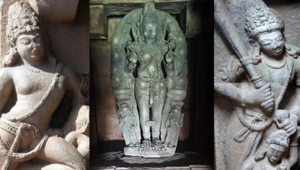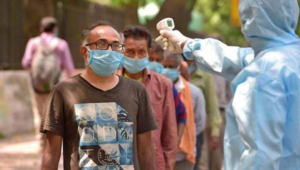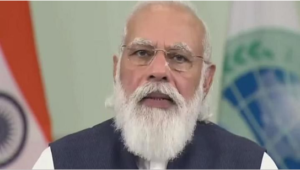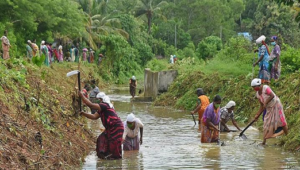
Ladakh standoff: India, China talks at an impasse.
Talks between senior military commanders of India and China to find a solution to the 17-month long standoff in the mountains of eastern Ladakh have run into rough weather.
Talks between senior military commanders of India and China to find a solution to the 17-month long standoff in the mountains of eastern Ladakh have run into rough weather, with the two sides blaming each other for the deadlock.

Ladakh standoff: India, China troop disengagement talks fail …
Talks between senior military commanders of India and China to find a solution to the 17-month long standoff in the mountains of eastern Ladakh have run into rough weather, with the two sides blaming each other for the deadlock. The 13th round of talks, held on the Chinese side of the Line of Actual Control (LAC) on Sunday, were aimed at discussing disengagement of troops at Hot Springs area of eastern Ladakh.
India’s quest for a road to Central Asia
On Monday, however, the two sides blamed each other for the impasse, with Beijing saying that the Indian side made unreasonable demands and New Delhi saying that the Chinese delegation made no constructive proposals.
The deadlock means that Indian soldiers are will spend a second winter in the icy heights of the Ladakh mountains where temperatures plummet to minus 30 degree Celsius according to various estimates. It also means that the chill in India-China ties, that set in after New Delhi noticed intrusions into Indian territory in May last year, is set to deepen given Beijing’s refusal to move its troops back from their current positions.
“What the Chinese seem to be saying is that there is a new reality on the ground that India needs to accept and conduct negotiations based on that,” said Srikanth Kondapalli, a professor of Chinese Studies at the New Delhi based Jawaharlal Nehru University.
“This is not acceptable to India” so “a new status quo of militarisation of LAC is the alternative,” Kondapalli said, echoing comments made by Indian Army chief Manoj Mukund Naravane on Saturday at a public event in New Delhi.Expressing concerns over the military build-up and new infrastructure development along the disputed border to sustain the large-scale deployment by China, Naravane said the building of infrastructure “means that they (China) are there to stay.””We are keeping a close watch on all these developments, but if they are there to stay, we are there to stay too,” he had said.
Coal crisis: Tata Power asks Delhi customers to use electric…
According to a statement from the Indian Army on Sunday’s talks, the Indian delegation “pointed out that the situation along the LAC had been caused by unilateral attempts of Chinese side to alter the status quo and in violation of the bilateral agreements. It was therefore necessary that the Chinese side take appropriate steps in the remaining areas so as to restore peace and tranquility.”
“The Indian side emphasized such resolution of the remaining areas would facilitate progress in the bilateral relations. During the meeting, the Indian side therefore made constructive suggestions for resolving the remaining areas but the Chinese side was not agreeable and also could not provide any forward-looking proposals. The meeting thus did not result in resolution of the remaining areas,” it said.
“The two sides have agreed to maintain communications and also to maintain stability on the ground. It is our expectation that the Chinese side will take into account the overall perspective of bilateral relations and will work towards early resolution of the remaining issues while fully abiding by bilateral agreements and protocols,” it added.
A spokesman for the Chinese Western Theatre Command said, “the Chinese side made great efforts to promote the easing and cooling of the border situation.. However, the Indian side still persisted in its unreasonable and unrealistic demands, which added difficulties to the negotiations.”
“Instead of misjudging the situation, the Indian side should cherish the hard-won situation in China-India border areas,” said Senior Colonel Long Shaohua said in a statement.
“What the Chinese did in April/May 2020 was not undertaken with the idea of restoring status quo ante. They are not going to resile from this position,” said Gautam Bambawale, former Indian ambassador to China. When asked what would be the next steps, Bambawale said that the talks will continue at the military and diplomatic levels but the gains they have made they will not want to give that up. “On the military front, the buildup we have right now will go through many winters. We will have to keep our troops on the frontlines in large numbers. The relationship will deteriorate further.”
Bambawale who was also India’s high commissioner to Pakistan said there were indications of China and Pakistan acting in collusion. “The actions are in response to 5 August, 2019 the steps we took to declare Jammu and Kashmir and Ladakh as separate union territories. It is a difficult situation but one we will handle,” he said.
GRMB to begin with management with Peddavagu project.
Telugu States not keen on handing over projects to River Board, say officials
A meeting of the Godavari River Management Board (GRMB) on implementation of the board purview, scheduled from October 14 as per a gazette notification issued by the Ministry of Jal Shakti on July 15, was held here on Monday to collect the information about the Godavari Basin projects in Telangana and Andhra Pradesh. The state government has demanded all projects in Telangana to be brought under the control of Godavari river management board.
At Monday’s GRMB meeting in Hyderabad which was attended by senior officials from AP and Telangana, discussions were held to bring Peddavagu under the Godavari river board’s control in the initial phase and other projects in future.AP water resources department secretary J Syamala Rao presented the objections raised by the AP government.
“The very purpose of GRMB’s formation would be defeated in case only Peddavagu is included in the list of the projects to be managed. Justice can be done to the two states through effective water management from the Godavari and approved projects only when all projects are monitored by the board,” Rao said.
He further said that AP is not getting sufficient water from Godavari during the lean season as Telangana has been diverting the waters to local tanks and irrigation schemes.
AP asks for clarity on seed money
“AP is struggling to manage drinking water needs in several villages which are dependent on the Godavari due to illegal and unauthorized use by Telangana,” he said, adding that they have also objected to Telangana’s demand to bring Sileru project under GRMB control as it was not a joint project. “Sileru does not serve the interests of Telangana; hence there is no need to bring the project under GRMB control.”
He also asked the GRMB to provide clarity with regard to the seed money as the state is not in a position to deposit the amount in one go, adding that the boards might seek the amount depending on the expenditure. AP also asked the Krishna river management board (KRMB) to bring all joint projects on Krishna, including Jurala, under its control. However, Telangana is reported to have raised its objection over the taking over of Jurala, stating that it wants the KRMB to take complete control of power houses on both the sides to avoid illegal taping of water from Srisailam.

Students to appear only six papers for class 10th exams.
There is no clarity on the syllabus for this academic year for the students, as they lost several academic days.
Hyderabad: The school education department on Monday released a government order reducing the number of test papers of Class X to six from the existing 11. It also includes Urdu as one of the second languages. Earlier there was only Telugu and Hindi.
The Secondary School Certificate (SSC) exams, for this academic year 2012-22, will have only one paper for one subject in view of the pandemic situation, when the students lost many
classes.Earlier, there used to be one paper for the second language and two each for other subjects.
Coal situation stays grim across India, Union Minister Amit Shah takes stock
As many as 96 of these plants that generate 71 per cent of total thermal power in the country, have coal stocks of four days or less.

Sourcing energy from the national exchange costs a bomb but many states dipping into it to avoid power cuts. Amid widespread concerns over power cuts across the country because of inadequate coal supply at generation units, Union Home Minister Amit Shah on Monday met both coal and power ministers to take stock of the situation. Besides power minister R K Singh and coal minister Pralhad Joshi, top officials of the ministries and senior officials from the state-run energy conglomerate NTPC Ltd, attended the hour-long meeting. While the ministry of coal sought to allay fears of disruption in power supply, the latest daily report of the Central Electric Authority said as many as 115 of the 135 thermal power plants in the country are now on coal stocks of less than a week. As many as 96 of these plants that generate 71% of total thermal power in the country, have coal stocks of four days or less.
Depending on the distance of the power plant (from the coal mines) and the kind of coal — pithead or non-pithead — it uses, a comfortable stock would last for 15-30 days. The stock is considered critical if it is likely to last for seven days or less; and super critical if it will be exhausted in four days or less. On Friday last, the number of power plants with critical or super-critical coal stocks was 110.
Reports from across the country confirmed the grim picture. Delhi’s thermal units barely have stock for two-three days, claimed power minister Satyendar Jain.
Karnataka has just two days of coal stock left, with barely 12 rakes, each having up to 4,000 metric tonnes of coal. As on 6.30 pm on Monday, the Raichur Thermal Power Station produced just 444 MW against a capacity of 1,720 MW from three grids; Ballari TPS 395 MW against a capacity of 1,700 MW; and Yeramarus TPS 678 MW though its installed capacity is 1,600 MW. Only one unit each of YTPS and BTPS were operating. Also, two coal-based thermal power plants have been shut for two-and-a-half months as coal could not be imported. However, hydro plants managed to address the need for now due to abundant rains.
In Rajasthan, Monday was the 11th successive day of blackouts. The state has an overall shortfall of about 2,450 MW, though coal stock has improved a bit with generation commencing in a few plants that were forced to go idle.
Punjab has a shortfall of 1,000 MW per day as many thermal units are shut or working at 50%.
States looking at options to meet power demands
“Many of our thermal power units are shut due to coal shortage. But in a day or so the power situation should improve,” said Punjab State Power Corporation chairman A Venu Parshad. Poll-bound Uttar Pradesh, too, has a deficit of over 1,000 MW, because of which some of the rural areas are facing five-six hour outages. However, uninterrupted supply to cities is being maintained.
Coal crisis: Power cuts seem inevitable in Andhra Pradesh October 18 onwards.
Power cuts for domestic consumers in Andhra Pradesh are likely from next week. The State has coal reserves to cater to the per day demand of power supply for only one week and if the situation does not improve, power cuts have to be imposed, sources said.
Though the power situation in the State is not that alarming at present as the daily demand is being met by electricity produced by power plants and market purchases, people have been advised to use power judiciously on need basis in the wake of shortage of coal for thermal plants across the country.
Minister for Energy Balineni Srinivasa Reddy, however, on Monday, October 11, 2021, maintained that the present situation arising out of the coal crisis is temporary and every effort is being made by the State government to overcome the situation.“Chief Minister YS Jagan Mohan Reddy is closely monitoring the situation and taking steps to ensure that power consumers are not subjected to any inconvenience,” he said.
However, sources indicated that power without cuts can be supplied for another one week only. “Imposition of power cuts may become inevitable in the present scenario,’’ they added.In fact, enough indications were given in the recent presser by Energy Secretary Nagulapalli Srikanth, where he appealed to people to avoid use of air-conditioners between 6 and 10 pm. If the demand for power is minimised, it will help the State save 10 million units (MU) a day.
Sajjala Ramakrishna Reddy, Advisor to Government (Public Affairs), also made a public appeal on similar lines. He said owing to the international coal crisis, power production across the country has been hit and it is also having an impact on Andhra Pradesh.
“Though efforts are being made to ensure that demand is met by purchasing power in the market, it is advisable for people to reduce their power usage during peak hours (6 to 10 pm) especially by avoiding ACs, which will help reduce the load factor,” he said.
According to Sajjala, the government is taking steps considering the demand during the ensuing summer. He expressed concern that if the coal crisis continues, it may become a problem during summer. He appealed to people to use power judiciously. Meanwhile, sources said the average demand for 175 MU in the State is being met with power produced by thermal, hydel, wind and solar power plants. A part of the demand is being met by power purchased from the market, which varies from day to day. On Monday, around 30 MU were purchased from the power market at a price of Rs 15 per unit.
Energy Minister Srinivasa Reddy said the coal shortage has forced thermal plants in the State under APGENCO to decrease their production. “The Chief Minister had written a letter to Prime Minister Narendra Modi a couple of days ago apprising him of the situation in the State and sought 20 rakes of coal for the State,’’ he explained. He said demand for power in the State increased during the Covid-19 pandemic by 15 MU on an average and every effort is being made to meet the demand. He rubbished the opposition’s claims that the power crisis in the State is due to the failure of the Energy Department.
He said no power plant under APGENCO was stopped and power from the market is being purchased as it has been cheaper compared to thermal power. The market price increased currently owing to the coal crisis. Power production in Rayalaseema Thermal Power Plant unit II and VI was stopped owing to annual maintenance and in unit IV due to coal shortage. NTPS unit II is under annual maintenance.The crisis is temporary, the minister said.
Government to also take over Air India’s unpaid bills of Rs 16,000 crore.
The new holding company for Air India, which will take over real estate, paintings and other non-core assets of Air India, will also be saddled with piles of unpaid bills from the hemorrhaging national carrier, in addition to loans from banks.
These “excess liabilities” being transferred to Air India Asset Holding Company Ltd add up to Rs 15,834 crore — which is more than a quarter of the airline’s total debt, pegged at Rs 61,562 crore at the end of August. So what are these “excess liabilities”? Government sources said these are largely unpaid bills of oil companies, airport operators and other vendors that Air India had managed to avoid paying over the years by virtue of being a wholly-owned government company. The government too has some part in this as it often delays payments, including for tickets purchased for its employees through another public sector company, “The sale will not just stop the hit that the government has to take on a daily basis but also help clean up the system and release funds,” a government official told TOI.While the liabilities, including loans and unpaid bills, will be taken over by the new entity immediately, it will only be able to monetise the assets over the next few years, depending on the market condition.
In the interim, it will have to work out arrangements with banks and other creditors to rework the terms, which the government believes should not be an issue as the government has guaranteed 94% of the loans used to keep the airline afloat, against accumulated losses of nearly Rs 84,000 crore at the end of March.
Besides, the terms of the transaction provide for the government to bear the financial impact of Air India operations until the company is transferred to its new owner by the end of December, officials said.












